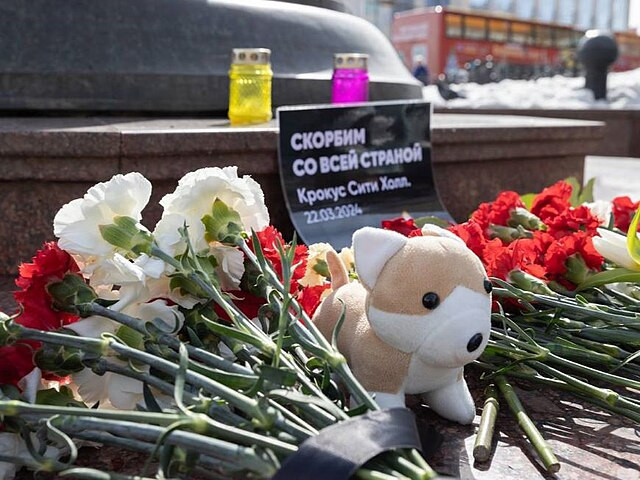The deadly mass shooting at a concert hall near Moscow on Friday has raised awkward questions about the priorities, resources, and intelligence gathering capabilities of Russia's security state. Despite its ruthless effectiveness in detaining Vladimir Putin's opponents and disrupting the operations of hostile foreign intelligence agencies, the FSB, the main successor agency to the Soviet-era KGB, appears to have been caught off guard by the attack, which claimed the lives of at least 137 people and injured more than 180.
Former U.S. intelligence officials and Western security analysts suggest that the FSB's focus on hunting down Ukrainian saboteurs, keeping anti-Kremlin activists in check, and dealing with the war in Ukraine may have caused it to overlook other threats, such as those posed by Islamist militants like ISIS-K, which claimed responsibility for the attack. "You can't do everything," Daniel Hoffman, a former senior CIA operations officer who served as the agency's Moscow station chief, told Reuters. "You dial up the pressure on the locals and sometimes you don't get the intelligence you need on a potential terrorist attack. That's where they failed."
The attack has undermined one of Putin's longstanding pledges to the Russian people: to ensure stability and security. It has also shaken residents of the Russian capital, who have largely been insulated from the violence of the Ukraine war despite occasional drone strikes. While Putin, a former KGB officer who recently won another six years in power, has weathered similar crises before and faces no visible threat to his grip on power, his response is likely to be one of greater force.
The head of RT, Putin's main propaganda agency, praised torture of the arrested terrorists in her tweet. It leaves no doubt that the release of the torture photos (the detained were electrocuted, severely beaten, and one had his ear cut) is a state PR strategy. Which is insane. pic.twitter.com/3kT3bAndjL — Konstantin Sonin (@k_sonin) March 25, 2024
Four of the 11 men detained in connection with the attack, all reportedly from Tajikistan, have been charged with terrorism and appeared in court after being interrogated. However, their appearance before the media showed outward signs of torture and duress, with one suspect having his ear missing, another in a wheelchair, and a third with bruises on his face and a ripped plastic bag around his neck. Videos leaked by security forces to social media appeared to show an agent electrocuting another suspect's genitalia.
The attack has also raised questions about missed warnings, as the U.S. embassy in Moscow issued a security alert to Americans on March 7, telling them it was "monitoring reports that extremists have imminent plans to target large gatherings in Moscow, to include concerts." Just three days before the killing spree, Putin delivered a speech to FSB chiefs in which he dismissed these warnings as "provocative" and intended to "intimidate and destabilize our society."
Despite ISIS-K claiming responsibility for the attack, Russian officials and state media have largely ignored this link, instead focusing on a possible Ukrainian connection. Putin, speaking to the nation in a video address on Saturday, said without evidence that the attackers were detained while fleeing to the Ukrainian border, where someone on "the Ukrainian side" was preparing to ferry them to safety. Ukrainian officials have vehemently denied any involvement, calling the accusations a Kremlin attempt to marshal Russian public support for an increasingly unpopular war.
As Russia marked a day of national mourning on Sunday, accounts of heroism emerged from the attack, particularly that of Islam Khalilov, a 15-year-old high school student who worked as a coat check attendant during the concert and led around 100 people to safety through the winding hallways of the venue.






